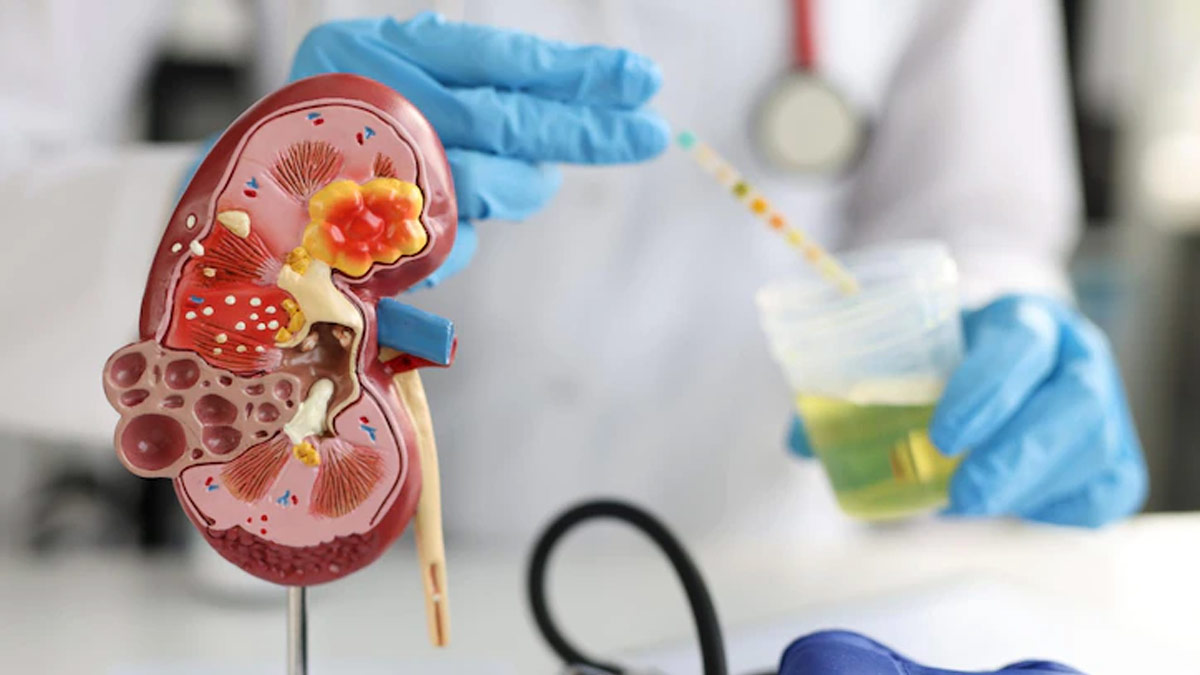
Kidneys are bean-shaped organs that form an essential part of the urinary system. They help the body pass waste in the form of urine while also filtering blood before it is sent back to the heart. Besides this, kidney also perform a wide range of vital functions like maintaining fluid balance in the body, regulating and filtering minerals from the blood, separating waste materials from food, medications, and toxic substances, and making hormones that aid in the production of red blood cells, promote good bone density, and regulate blood pressure.
Table of Content:-
“Kidney tends to interact with a wide range of toxins that can create a lot of health complications for the organ, including Chronic Kidney Disease, Kidney Failure, Kidney Stones, Acute Nephritis, Urinary Tract Infections, Kidney Cysts to name a few.
When the Kidneys are unable to function correctly, a transplant may be needed to avoid future complications,” said Dr Atul Ingale, Director- Nephrology & Consultant Transplant Physician, Fortis Hiranandani Hospital, Vashi
What is a Kidney transplant?
“In patients whose Kidneys do not function correctly, Dialysis treatment will be needed so toxins do not build up in the body. This is a treatment where toxins are mechanically filtered from the bloodstream,” said Dr Ingale.
Also read: Suffering From Kidney Stones? Here's How Cucumber Can Help
“Some patients whose Kidneys have failed may qualify for a Kidney transplant. In this procedure, either one or both the Kidneys are replaced with donor Kidneys from a live or deceased person. However, Kidney transplants are not the right choice for everyone. People who have active infections and those who are severely overweight may not be accepted as candidates for a transplant,” he added.
Who donates the Kidney?
Kidney Donors Can Either Be Living or Deceased.
Living donors
“Since the human body can function healthily with just one well-functioning Kidney, a family member may choose to donate one of them to a close relative. If the family member’s blood and tissues match the Kidney receiver’s blood and tissues, they can schedule a planned donation. A Kidney from a family member is ideal as it reduces the risk of rejection and allows immediate surgery,” said Ingale.

Deceased donors
Also called cadaver donors; these are people who have perished, usually as the result of an accident rather than a disease. Cadaver organ donation means organ donation after brain death certified by a special team of the hospital. In this case, either the donor before his death or their family has chosen to donate their organs and tissues. As far as cadaver organ donation is concerned, a pledge card or consent by the closest relative is mandatory. In some cases, a donor’s Kidney can be rejected by the recipient.
What are the prerequisites for a Kidney transplant?
Once a potential donor is identified, the transplant patient must undergo a test to ensure the antibodies will not attack the donor’s Kidney. This test is performed by mixing a small amount of the patient’s blood with the specific donor. The transplant cannot be performed if the patient’s blood forms antibodies in response to the donor’s blood. However, if the blood does not show any antibody reaction, the surgeon can perform the transplant.
If the transplant is from a living donor, the surgeon can schedule the surgery in advance. However, if the donor is deceased and is a close match in terms of tissue type, then the patient will need to be available for surgery the moment the donor is identified.
How is a Kidney transplant performed?
During a Kidney transplant, a Nephrologist will take the donated Kidney and place it in the patient’s body. In the case of a Kidney transplant, you can seek a donation from a close family member, as people can live a healthy life with only one functioning Kidney. After the transplant, the patient who underwent the transplant is required to take immune-suppressing medications so that their immune system does not attack the new organ.
How many people in India are currently on the waitlist for Kidney transplants?
According to the Indian Society of Organ Transplants (ISOT), 1.75 lakh patients are waiting for a kidney transplant. The average wait time for a Kidney transplant is 3-5 years at most centers, but it can be longer in some parts of the country. For example, in Karnataka, the waiting time for a Kidney transplant is at least four years.
Also read: Worst Foods For Kidney Health: What To Avoid
Who can be a potential organ donor?
As per Dr Ingale, to qualify as a live donor regarding donating a Kidney to a close family member, it is vital to meet the following criteria:
- Be over the age of 18 and below 70 years. You can donate if you are above 70 if all other parameters are normal
- Be willing to commit to a pre-donation evaluation process, surgery, and the burden of recovery
- Should be healthy and have a good psychological mindset
- Have a compatible blood type
- Have normal Kidney function
- Not suffering from chronic renal disease, potential metastasising malignant, or severe hypertension
Also watch this video
Read Next
Essential Oils For Psoriasis: Expert Explains Role Of Essential Oils For Managing Psoriasis Symptoms
How we keep this article up to date:
We work with experts and keep a close eye on the latest in health and wellness. Whenever there is a new research or helpful information, we update our articles with accurate and useful advice.
Current Version